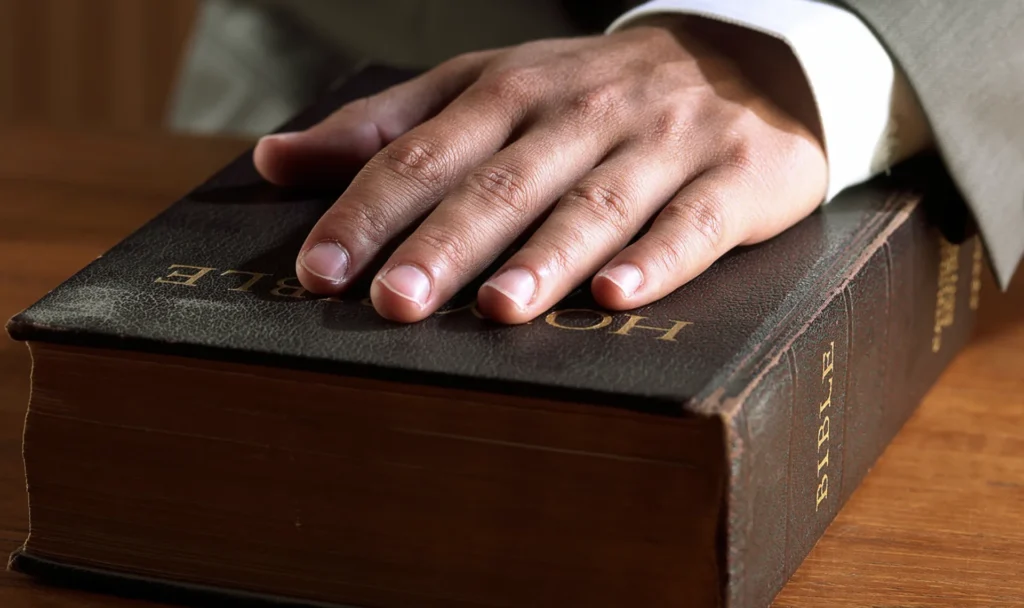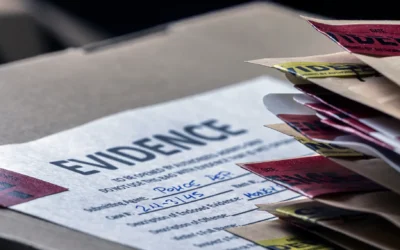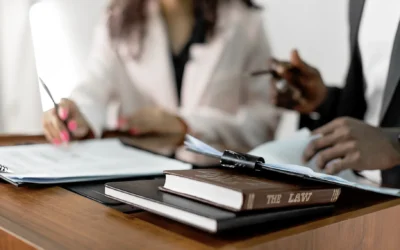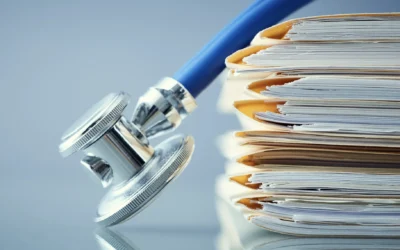Introduction
After an accident, life can feel like it’s turned upside down. Whether you’re facing mounting medical bills, lost wages, or the emotional toll of recovery, the road ahead may seem daunting. In personal injury cases, every detail matters, and one critical piece of the puzzle often comes from witnesses. Witnesses play a vital role in helping establish what happened, who was at fault, and how the accident has impacted your life.
If you or someone you care about is navigating the aftermath of an accident, understanding the role of witnesses can provide clarity and direction. Witnesses are not just individuals who saw what happened; they can include experts who explain the finer details of your injuries or the accident itself. Together, their testimonies can strengthen your case and increase your chances of receiving fair compensation.
Navigating the complexities of a personal injury case can feel overwhelming, but you don’t have to go through it alone. Hurt Aid is here to provide guidance, connect you with trusted professionals, and simplify the process. With the right information and support, you can take confident steps toward recovery and justice.
What Are Witnesses in Personal Injury Cases?
Witnesses are individuals who provide firsthand or expert knowledge about an event or its aftermath. Their testimony can be invaluable in personal injury cases, offering clarity and evidence to support your claim. A witness’s account can paint a more comprehensive picture of what happened, providing details that physical evidence alone might not convey.
Types of Witnesses
Understanding the different types of witnesses and their roles can help you see how they contribute to building a strong case:
- Eyewitnesses
These are people who were present at the scene of the accident and can describe what they observed. Eyewitnesses might have seen how the accident occurred, the conditions leading up to it, or the immediate aftermath. For example, in a car accident case, an eyewitness might recall seeing a driver run a red light or texting while driving. - Expert Witnesses
Unlike eyewitnesses, expert witnesses provide professional insights based on their specialized knowledge. They weren’t present during the incident but use their expertise to analyze and explain specific aspects of the case. For instance:- A medical professional can detail the severity of your injuries and how they affect your life.
- An accident reconstructionist can use evidence to illustrate how the accident happened.
- A vocational expert might assess how your injuries impact your ability to work.
- Character Witnesses
These individuals testify about your life, character, or changes you’ve experienced due to the injury. They can provide context to help a judge or jury understand how the accident has affected your daily life. For example, a family member or friend might describe how you’ve struggled with mobility or emotional challenges since the accident.
By working together, these witnesses can provide a powerful combination of factual accounts and professional perspectives that reinforce the validity of your claim.
Why Witnesses Matter in Personal Injury Cases
Witnesses can significantly impact the outcome of a personal injury case. Whether you’re negotiating a settlement or presenting your case in court, their testimonies serve as critical tools for proving what happened, demonstrating fault, and showcasing the effects of the injury on your life.
Corroborating Evidence
One of the key roles of a witness is to corroborate your account of the accident. When a neutral party confirms details of your story—such as the events leading up to the accident or the negligence of the other party—it can bolster your credibility. For example, if an eyewitness saw a driver speeding or ignoring traffic laws, their testimony could substantiate your claim.
Establishing Fault
Determining who is at fault is essential in personal injury cases, and witnesses can be instrumental in this process. Eyewitnesses might describe reckless behavior or unsafe conditions, while expert witnesses can provide a deeper analysis. For instance:
- An accident reconstructionist could use physical evidence to show how the other party caused the incident.
- A medical expert could explain how the injuries align with the circumstances of the accident, ruling out alternative causes.
By highlighting negligent actions, witnesses help assign responsibility, which is a cornerstone of any personal injury case.
Enhancing Credibility
Testimonies from witnesses, especially neutral third parties, add weight to your case. Their perspectives are often seen as impartial and trustworthy, which can influence insurance adjusters, judges, or juries. When a credible eyewitness provides details consistent with your narrative, it reinforces the legitimacy of your claim.
Filling Gaps in Evidence
In some cases, physical evidence or documentation might not tell the full story. Witnesses can provide context that fills in these gaps. For instance, they might recall environmental conditions, such as poor visibility or slippery roads, that contributed to the accident. Their observations can provide a clearer understanding of the situation when tangible evidence is limited.
Illustrating the Impact of the Injury
Character witnesses and experts can also help demonstrate how the injury has affected your life. A family member’s testimony about your struggles with daily activities or an economist’s assessment of your long-term financial losses can illustrate the broader consequences of the accident.
By leveraging witness testimonies, you strengthen your case, making it easier to achieve a fair resolution, whether through a settlement or a court judgment.
Eyewitness Testimony
Eyewitness testimony is one of the most common and impactful forms of evidence in personal injury cases. Eyewitnesses can provide a firsthand account of what they observed before, during, or after the incident, offering details that might otherwise go unnoticed. Their perspective can be crucial in painting a clear picture of the event and establishing fault.
The Importance of Timely Eyewitness Statements
Time is critical when gathering statements from eyewitnesses. Memories fade, and details can become less clear as days or weeks pass. If you’ve been involved in an accident, it’s important to identify and speak with eyewitnesses as soon as possible. Collect their contact information and, if they’re willing, ask them to describe what they saw in their own words. Attorneys often rely on these early statements to build a strong foundation for the case.
What Eyewitnesses Can Contribute
Eyewitnesses might be able to describe:
- The Sequence of Events: Who was at fault, such as a driver running a red light or a property owner ignoring a hazard.
- Environmental Conditions: Visibility, weather, or road conditions that played a role in the incident.
- Immediate Reactions: Statements or behaviors of the parties involved right after the accident (e.g., admissions of guilt, aggressive actions, or visible signs of intoxication).
Challenges with Eyewitness Testimony
While eyewitness accounts are valuable, they aren’t without challenges:
- Memory Reliability: Over time, witnesses may forget details or unconsciously alter their recollections.
- Bias: Witnesses may have unconscious biases based on their relationship to the parties involved or their own perceptions.
- Conflicting Accounts: Different eyewitnesses might describe the same event in varying ways, which can complicate the case.
Despite these challenges, attorneys are skilled at identifying reliable eyewitnesses and addressing discrepancies in testimony. They may use additional evidence, such as photos, videos, or expert analysis, to corroborate and strengthen eyewitness accounts.
How Eyewitness Testimony Supports Your Case
Eyewitness testimony carries significant weight because it comes from individuals who have no direct stake in the outcome of the case. Their neutrality can enhance the credibility of your claim and help establish the facts. For this reason, securing strong eyewitness statements as early as possible is a vital step in the aftermath of an accident.

The Role of Expert Witnesses
In personal injury cases, expert witnesses provide specialized knowledge that goes beyond what an average person might understand. These professionals weren’t present at the scene of the accident, but their expertise can clarify complex issues, support claims, and strengthen your case. Expert witnesses are particularly valuable when the case involves technical, medical, or financial details.
Types of Expert Witnesses
- Medical Experts
- These professionals explain the nature, extent, and implications of your injuries.
- They might testify about:
- The severity of your condition.
- Whether your injuries are consistent with the type of accident you experienced.
- The necessity of ongoing treatment or future medical care.
- Example: A surgeon might testify that a back injury sustained in a car accident requires surgery and long-term physical therapy, establishing the need for compensation for future medical expenses.
- Accident Reconstructionists
- These experts use evidence, such as skid marks, vehicle damage, and traffic patterns, to recreate the accident.
- Their analysis can show how the accident occurred and who was likely at fault.
- Example: In a multi-car collision, an accident reconstructionist might determine that one driver’s excessive speed caused a chain reaction.
- Economic Experts
- These professionals assess the financial impact of the injury, including lost wages, reduced earning capacity, and other economic losses.
- They calculate a monetary value to help the court or insurance companies understand the financial burden caused by the accident.
- Example: An economist might explain how a permanent injury affects your ability to earn income over your lifetime.
- Mental Health Experts
- In cases where emotional or psychological trauma is significant, therapists or psychologists might testify about how the accident has impacted your mental health.
- Example: A psychologist could describe how a victim of a traumatic accident has developed post-traumatic stress disorder (PTSD) and requires ongoing therapy.
How Expert Witnesses Strengthen Your Case
- Clarifying Complex Issues: Expert witnesses translate technical or medical jargon into understandable terms for judges, juries, and insurance adjusters.
- Demonstrating Causation: They help establish a direct link between the accident and your injuries or losses, countering arguments that other factors caused your condition.
- Quantifying Damages: Experts provide concrete numbers and detailed projections, ensuring your claim accounts for all current and future damages.
Challenges with Expert Witnesses
While expert witnesses are invaluable, their involvement can also present challenges:
- Costs: Expert testimony can be expensive, as it often involves extensive preparation and analysis.
- Cross-Examination: Opposing attorneys may attempt to discredit the expert’s qualifications or findings.
- Perception: Juries may view some experts as biased if they are frequently hired by attorneys, so selecting credible and neutral experts is essential.
Maximizing the Value of Expert Testimony
Experienced attorneys know how to identify reputable experts and use their insights strategically. They’ll ensure the expert’s findings align with other evidence in your case and are presented in a way that resonates with decision-makers. Whether you’re facing a complex medical diagnosis or challenging financial projections, expert witnesses can help turn uncertainty into clarity, strengthening your pursuit of fair compensation.
Challenges with Witness Testimony
While witnesses play a vital role in personal injury cases, relying on their testimony comes with challenges. Understanding these potential issues can help you anticipate and address them as you navigate your case.
Eyewitness Credibility
Not all eyewitnesses are equally reliable. Several factors can impact the credibility of their testimony:
- Memory Gaps: Over time, witnesses may forget key details or recall events inaccurately, especially if their statements aren’t documented promptly.
- Biases: Witnesses may unconsciously favor one party based on their relationship or perceptions of the situation.
- Stress and Trauma: Witnesses who were involved in or near the accident may have been in shock or distracted, leading to incomplete or distorted memories.
Example: A pedestrian witnessing a car accident might have been focused on avoiding danger themselves, which could affect the details they remember.
Conflicting Testimonies
When multiple witnesses provide accounts, their perspectives may not align perfectly. This isn’t necessarily a sign of dishonesty—it’s often a natural result of differing vantage points or interpretations. However, discrepancies can complicate the case and give the opposing side an opportunity to challenge your claims.
Availability of Witnesses
Securing witnesses’ cooperation isn’t always straightforward. Some may be reluctant to get involved due to:
- Concerns about legal proceedings.
- Scheduling conflicts.
- Fear of retaliation or inconvenience.
In such cases, attorneys often step in to explain the importance of their role and address their concerns professionally.
Expert Witness Costs
Expert witnesses bring invaluable insights, but their services come at a cost. Fees for their time, research, and testimony can add up, particularly in complex cases. While these expenses are often factored into the potential settlement or judgment, they can pose a hurdle for plaintiffs managing financial stress after an accident.
Cross-Examination and Legal Challenges
In court, witnesses are subject to cross-examination by opposing counsel. Attorneys may attempt to:
- Discredit eyewitness accounts by pointing out inconsistencies.
- Challenge the qualifications or impartiality of expert witnesses.
- Introduce alternative explanations for the evidence provided.
An experienced attorney will prepare witnesses for these scenarios, ensuring they remain confident and focused during questioning.
Strategies to Address Witness Challenges
To overcome these obstacles, consider these best practices:
- Document Early: Collect eyewitness statements immediately after the accident to preserve their memories.
- Prepare Thoroughly: Work with your attorney to ensure all witnesses understand their role and what to expect during testimony.
- Choose Reputable Experts: Select experts with strong credentials and a history of providing balanced, credible testimony.
- Anticipate Opposition: Be ready for the opposing side to scrutinize witnesses and have counterarguments prepared.
Witness testimony is a powerful tool, but navigating its challenges requires strategic planning and support. By working closely with your attorney and ensuring witnesses are well-prepared, you can mitigate potential hurdles and maximize the value they bring to your case.
How to Work with Witnesses Effectively
Witnesses are a crucial component of any personal injury case, but their testimony is only as valuable as the preparation and strategy behind it. Knowing how to identify, secure, and work effectively with witnesses can make all the difference in achieving a successful outcome.
Steps to Identify and Secure Witnesses
- Collect Information Immediately
After an accident, try to gather the contact details of anyone who may have seen what happened. Ask for:- Names
- Phone numbers
- Email addresses
- A brief account of what they witnessed
- Prompt action ensures you can reach out later when you’re ready to build your case.
- Look Beyond the Obvious
Don’t limit yourself to people directly involved or nearby at the time of the incident. Additional witnesses might include:- Passersby who heard the crash or saw events unfold from a distance.
- Employees or residents in nearby buildings who might have seen relevant events leading up to the accident.
- First responders who observed your condition at the scene.
- Use Supporting Evidence to Find Witnesses
Video footage from surveillance cameras, dashcams, or smartphones may reveal bystanders or vehicles at the scene who could provide valuable testimony. Attorneys often use this evidence to locate witnesses after the fact. - Engage Expert Witnesses Early
In cases requiring expert analysis, attorneys often consult specialists early in the process to ensure their findings align with the overall strategy. The sooner an expert is involved, the more effectively they can analyze evidence and contribute insights.
Tips for Ensuring Accurate Statements
- Avoid Leading Questions: When speaking to eyewitnesses, let them describe what they saw in their own words rather than steering them toward a specific conclusion. This ensures their testimony remains unbiased and credible.
- Document Thoroughly: Record or write down their account as soon as possible to preserve key details while their memory is fresh.
- Follow Up: If the case takes months to resolve, check in periodically with witnesses to reaffirm their availability and ensure their recollection remains consistent.
Working with Attorneys to Manage Witnesses
A skilled attorney plays a pivotal role in managing witnesses, ensuring their testimonies are clear, consistent, and effective. Here’s how they help:
- Preparation for Testimony: Attorneys brief witnesses on what to expect during depositions or court proceedings, including how to respond under cross-examination.
- Legal Coordination: They handle subpoenas if a witness is hesitant or unavailable and work to address logistical challenges, such as scheduling conflicts.
- Strategy Development: Attorneys integrate witness testimony with other evidence, presenting a cohesive narrative that supports your case.
Legal Considerations When Working with Witnesses
- State-Specific Laws: Rules regarding witness testimony and expert qualifications vary by jurisdiction. An attorney familiar with local laws ensures compliance.
- Confidentiality: Witnesses should avoid discussing details of the case with others to prevent unintentional inconsistencies or breaches of privacy.
- Impartiality: Witnesses should remain neutral and factual, focusing solely on their observations or expertise.
Building a Strong Foundation
Witness testimony is most impactful when it’s well-prepared and seamlessly integrated into your case strategy. By working closely with your attorney to identify, prepare, and present witnesses effectively, you can strengthen your claim and move closer to securing the justice and compensation you deserve.
What to Do After an Accident: Witness Edition
After an accident, gathering evidence and securing witnesses are critical steps that can significantly impact the outcome of your personal injury case. Knowing how to handle witness-related tasks immediately following an accident can make a meaningful difference in preserving crucial information and building a strong case.
Steps to Take Immediately After the Accident
- Identify Potential Witnesses
- Look around the scene to see if anyone observed the accident.
- Approach bystanders respectfully and ask if they are willing to provide their contact information.
- Record their names, phone numbers, and email addresses.
- Document Statements
- Ask witnesses what they saw and take notes or record their responses (with their consent).
- Focus on gathering objective details, such as:
- The sequence of events they observed.
- Any actions or behavior they noticed, such as reckless driving or unsafe conditions.
- Avoid pressuring them to say more than they’re comfortable sharing.
- Collect Additional Evidence
- Take photos or videos of the scene to supplement witness testimony.
- Look for cameras nearby (traffic cameras, surveillance systems) that might capture other witnesses or additional evidence.
- Inform Your Attorney
- Provide your attorney with all witness information and documented statements as soon as possible. They can follow up to secure formal testimony if necessary.
How Witnesses Can Strengthen Your Case After the Accident
- Validating Your Account: Witnesses who can confirm your version of events lend credibility to your claim.
- Refuting False Claims: If the other party disputes what happened, witness testimony can serve as a powerful rebuttal.
- Filling in Gaps: Witnesses may recall details you missed in the chaos of the accident, such as the color of a car or the sound of brakes.
Avoid These Common Mistakes
- Failing to Act Quickly: Waiting too long to identify and contact witnesses can lead to lost opportunities, as memories fade or people become harder to reach.
- Neglecting to Document Contact Information: Simply speaking with a witness isn’t enough—you’ll need their contact details to reach them later.
- Trying to Influence Testimony: Encourage witnesses to share what they saw in their own words. Attempts to sway their account can undermine their credibility.
Conclusion
Witnesses are a cornerstone of personal injury cases, providing the clarity, evidence, and support needed to navigate the complex journey toward justice and compensation. Whether they are eyewitnesses recounting the events of an accident, expert witnesses offering professional insights, or character witnesses illustrating the personal impact of injuries, their contributions can significantly strengthen your case.
However, leveraging witness testimony effectively requires prompt action, careful preparation, and skilled guidance. By understanding the challenges and strategies associated with working with witnesses, you can avoid common pitfalls and ensure their testimony adds value to your claim.
After an accident, it’s natural to feel overwhelmed by the tasks ahead. That’s where Hurt Aid comes in. Our platform is designed to connect you with trusted legal professionals and provide the resources you need to navigate every step of the process. Whether you’re gathering evidence, managing witness statements, or seeking legal advice, we’re here to help you turn uncertainty into confidence.
Your path to recovery and justice begins with understanding your rights and options. Let Hurt Aid guide you toward the support and solutions you deserve. Take the first step today—because no one should face this journey alone.





